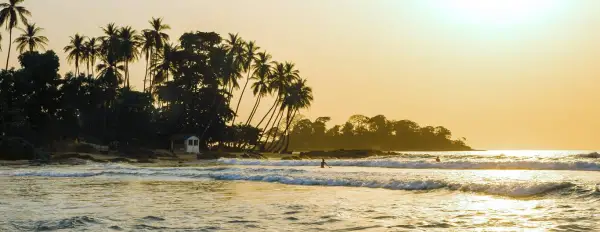- Overview
- Info & Inclusions
- Itinerary
- Map & Hotels
- Photos
- Dates & Prices
- Max Group Size 16
- Visit Gorée Island UNESCO World Heritage Site and explore Dakar's vibrant markets
- Discover the rare salt-water hippos in Guinea-Bissau's Bijagós Archipelago
- Experience traditional Bijagó island villages and witness unique matriarchal cultures
- Explore Cape Coast Castle and confront the history of the transatlantic slave trade
- Walk the canopy bridges above Kakum National Park's pristine rainforest
- Visit Bunce Island slave castle and trace the footsteps of freed slaves who founded Freetown
- Singles friendly (view options for single travellers)
From Dakar's animated markets to Abidjan's sophisticated boulevards, this odyssey leads through UNESCO World Heritage sites, traditional villages, and wildlife sanctuaries across seven nations that few travellers ever experience. A major highlight is Guinea-Bissau's Bijagós Archipelago, a remote island paradise steeped in centuries-old Bijagó traditions—featuring salt-water hippos adapted to coastal environments, palm-fringed beaches accessible only by motorboat, and matriarchal villages where animist beliefs and fishing customs have endured largely unchanged.
We explore the sobering legacy of the transatlantic slave trade at Gorée Island, Cape Coast Castle, and Bunce Island, visit traditional Wolof, Jola, and Serer communities maintaining ancestral customs, and venture into Kakum's rainforest canopy where suspension bridges offer aerial perspectives of one of West Africa's last coastal tropical forests. The journey encompasses sacred sites like Touba's magnificent Great Mosque, conservation successes at Bandia Reserve and Tacugama Chimpanzee Sanctuary, and the unique shell-built island of Joal Fadiouth where Muslims, Christians, and Animists share a cemetery in remarkable harmony.
The tour concludes with Ghana's fantasy coffins and Ivory Coast's colonial architecture at Grand Bassam, offering a richly rewarding and profoundly eye-opening immersion into West Africa's extraordinary diversity, resilience, and largely undiscovered treasures.
- MealsSavour authentic flavours with included daily breakfasts, some lunches, and dinners at hotels or handpicked local restaurants—immersing you in local cuisine without worrying about reservations or budgets.
- Transport & Logistics
Private air-conditioned coaches and included internal ferries and flights—ensuring hassle-free travel so you can focus entirely on the discoveries ahead.
"Adventures Abroad tour leader's management and guest services managed the tour with great skill and dedication. The tour leader was on top of every move and transfer. We have not experienced any issues with logistics and had a great time."
~ JULIA O"The tour leader did an excellent job coordinating some difficult travel logistics, power outage issues and resolving problems and dealing with guests who had unrealistic expectations."
~ CYNTHIA COLLINS - Expert Guidance
Unlock insider secrets at every landmark with your full-time Tour Leader and expert local guides , all gratuities covered—no hidden tipping surprises—so you immerse fully in your destination's stories, worry-free. (Except for the tips to your tour leader at the end of your tour.)
"Amazing tour guide. Our tour guide was very well organized, Her passion, knowledge, and enthusiasm completely transformed the travel experience into something truly unforgettable..."
~ MELANIE LEMAIRE"Highly recommend every trip with Adventures Abroad. It's a well organized and well thought out adventure. The tour leaders are friendly, knowledgeable and experienced professionals. Highly recommend this company."
~ SUSAN WALL - Sightseeing & EntrancesAll entrance fees for sites visited as per the itinerary—no hidden costs—so you can explore ancient ruins and excursions with complete peace of mind.
- AccommodationsUnwind in clean, well-located 3 to 4-star hotels with private en suite facilities—handpicked for comfort and convenience after each day's discoveries—so you can rest easy knowing your stay supports the real adventure, not steals the spotlight.
- Small Group
Discover the world in small groups of up to 16 travellers plus your expert Tour Leader—unlocking spontaneity, off-the-beaten-path adventures, and genuine connections at a relaxed pace, free from crowds.
"Looking Forward to My Next Adventure The best feature of the Adventures tour was the small size that allowed the group to quickly load up, let everyone get acquainted within the first 24 hours, capitalize on unplanned surprises along..."
~ PHILIP BLENSKI"Good value for a great time I have traveled with Adventures Abroad for over 20 years now. Well thought out, interesting itineraries and the other travelers congenial and friendly. The price always seems fair and overall a..."
~ Trusted Customer - Airport Transfers For Land & Air CustomersWe handle hassle-free airport transfers for all our land and air tour customers—plus early arrivals or late departures when you book extra hotel nights directly with us for added peace of mind.
- International airfare to/from the tour.
- Tour Leader gratuities, most lunches, drinks, personal items (phone, laundry, etc), international air taxes (if applicable), visa fees (see below), and any excursions referenced as 'optional'.
- Airport transfers for Land Only customers.
- Visa/entry fees (see Transport & Travel section)
- Optional trip cancellation insurance (strongly recommended for this trip).
- Seasonality and Weather:
This tour operates during West Africa's most favourable travel periods: late February through March at the end of the dry season, and October through November at the beginning of the dry season.
Both windows offer minimal rainfall and comfortable conditions for exploring coastal cities, undertaking island excursions in the Bijagós Archipelago, and wildlife viewing at reserves like Bandia and Kakum where animals congregate around water sources. The dry season ensures optimal road conditions for overland crossings between countries, particularly important for the Guinea to Sierra Leone route where roads can become challenging during the rainy months. These periods also provide excellent visibility for canopy walks, boat journeys, and photography, while coastal areas benefit from cooling Atlantic breezes that moderate the tropical heat.
The October/November departure captures the landscape at its greenest following the rainy season, while the February/March timing offers drier, slightly cooler conditions. - Transport and Travel Conditions:
The itinerary has been designed to be as comfortable as possible, but many parts of West Africa are still largely undeveloped. Many road journeys are long and rough and sometimes dusty... or muddy!
In most countries we visit the land transport will be by private AC bus, Toyota Coaster or equivalent with approx 25+ seats. Sometimes 2 smaller vans may be used instead of a larger bus.
In general, this is a tour with a lot of variables and things that can "go wrong" -- roads wash out, tires go flat, hot water simply stops (or never starts), air-conditioning is weak, and road journeys can take longer than anyone expects. One must be open-minded, patient, and focused on the task at hand: enjoying the region's myriad cultures, sights, and sounds, and its friendly hospitable peoples.
The program is busy, with lots of moving around, very full days of travel and activities, with some challenges to your comfort and health -- bad roads, extreme heat, early starts, remote locations. If you have a weak constitution, compromised immunity, or any pre-existing medical conditions that could call for readily accessible, modern medical care, you should very carefully consider your suitability.
Many past travellers have described this tour as "tough," "challenging," "tiring," and, of course, "totally worth it."
VISAS & RELATED FEES: As we include 8 countries on this tour, one can expect a good number of bureaucratic hoops to jump through with respect to entry requirements for each one visited on this trip. On your behalf, we will apply for official pre-clearance documents for four of the countries for which we need passport scans and passport photos. You will need these REGARDLESS of your nationality. There are fees associated with this, which have been adding up to around USD 1050 per person, for which we will bill you separately in advance (subject to change) -- this is NOT included in base tour price. This amount is IN ADDITION to the cost of the actual visas for which the traveller pays directly, some of which are visa-in-advance (some online) and available upon arrival. Full details are provided upon reservation and will be enhanced/updated as needed as we draw nearer to departure.
A word about TOUR STATUS: While we appreciate that everyone wants to know when their chosen date for this tour will be 'guaranteed,' this tour is a special case in that our reaching minimum numbers is only one small part of the process. This tour usually sells out well in advance, but we often hold off on confirming final dates and itinerary until we have confirmed ALL arrangements at destination. This tour sometimes has to run in a different order, which could affect overall dates and tour start/end points. We will only confirm once such details are finalized.
Am I suitable for this tour? Please refer to our self-assessment form - Activity Level: 2
These are particularly busy tours that feature a lot of moving around, sometimes by train and short journeys on local transport. Walking tours of towns and cities are leisurely but you should be prepared to be on your feet for several hours. Some of our cultural trips that occur at high altitude and/or require greater independence with baggage handling (at hotels, airports, train stations) also fall into this category.
To learn more about the Activity levels, please visit our tour styles page. - Accommodation:
In major cities the hotels are generally of international standard (3-4 star). Outside of major cities the hotels tend to be more rustic & simpler properties where AC may or may not be functioning properly and a fan will then be used. All hotels have en-suite toilet & shower. Though more and more rare these days, you must be prepared for power and/or water failure in some more remote locales. These cautions aside, many past travellers have indicated that the high quality of the accommodation provided went a long way in making the overall trip "doable."
Hotel porterage is generally available (see inclusions) though you must be independent with luggage. Single rooms are limited in number and will likely be smaller than twins.
Please click on 'Map & Hotels' link for full information. - Staff and Support:
Tour Leader throughout, local guides, drivers. - Group Size:
Maximum 16 plus Tour Leader
- Day 1:Arrival in Dakar, SenegalToday we arrive in Dakar.
Dakar immediately embraces us with its colourful markets, animated conversations, and perpetual motion. What initially appears chaotic reveals itself as an intricate dance of daily life. The passionate people who call this city home have created something extraordinary—a place where tradition and modernity coexist in perfect, if sometimes frenetic, harmony.
Tonight we settle into our accommodations and prepare for the extraordinary journey ahead.
Overnight in Dakar.
Included Meal(s): Dinner, if required - Day 2:Dakar: Goree Island Exploration & Dakar City TourA short ferry ride transports us to Gorée Island, where centuries of human history unfold in stark, powerful contrast. This UNESCO World Heritage Site served as one of Africa's largest slave-trading centres from the 15th to 19th centuries, ruled successively by Portuguese, Dutch, English, and French colonizers.
The island's architecture tells its haunting story—elegant traders' houses standing in sobering juxtaposition to the grim slave quarters below. Today, Gorée serves as both a sanctuary for reconciliation and an unflinching reminder of human exploitation. We explore the ethnographic museum, where artifacts and exhibits help us understand this complex legacy.
Returning to Dakar, we discover the city's colonial grandeur at Place de L'Independence, symmetrically designed around majestic buildings including the former French governor's residence and Chamber of Commerce. Our tour continues past the Presidential Palace and through the picturesque Medina district, before visiting the Musée des Civilisations Noires, celebrating Africa's rich cultural heritage.
The Corniche drive offers spectacular coastal views as we absorb our first full day in this fascinating nation.
Overnight in Dakar.
Included Meal(s): Breakfast and Dinner - Day 3:Dakar - Touba - KaolackWe begin with a climb up the African Renaissance Monument, a towering 52-metre bronze statue symbolizing Africa's hopeful future. Built atop the twin Collines des Mamelles, it offers panoramic views of the city we're leaving behind.
Our journey inland introduces us to rural Senegal as we stop at a traditional Wolof village, learning about customs and daily life that have endured for generations. The contrast between urban Dakar and village rhythms reveals Senegal's remarkable diversity.
Touba awaits—the holy city of Mouridism, West Africa's largest Sufi order. At its heart stands the Great Mosque, one of Africa's most magnificent religious structures. Since its 1963 completion, continuous enlargements and embellishments have created an architectural masterpiece that reflects the deep spiritual devotion of Senegal's Muslim community.
By late afternoon, we reach Kaolack, strategically positioned on the Saloum River. This important port town, 150 kilometres southeast of Dakar, thrives on peanut and salt exports, representing Senegal's agricultural heartland.
Overnight in Kaolack.
Included Meal(s): Breakfast and Dinner - Day 4:Kaolack - Senegambia Stone Circles, Senegal - Banjul, GambiaWe venture to Sine Ngayène, home to one of West Africa's most extraordinary archaeological treasures. The Senegambia stone circles represent a remarkable achievement of pre-historic civilization—over 1,000 monuments scattered across a 100-kilometre band along 350 kilometres of the Gambia River.
These four groups—Sine Ngayène, Wanar, Wassu, and Kerbatch—encompass 93 stone circles and numerous burial mounds dating from the 3rd century BC to 16th century AD. The laterite pillars and associated tumuli create a vast sacred landscape, evidence of a prosperous, highly organized society that flourished for over 1,500 years.
Crossing into Gambia, we encounter Africa's smallest mainland nation, surrounded by Senegal on three sides with the Atlantic forming its western border.* Arab traders first documented this region in the 9th and 10th centuries, establishing trade routes that connected inland kingdoms with coastal commerce.
We conclude our day in Banjul, the capital city that serves as our gateway to Gambian culture and history.
* The last part of our day's journey involves a ferry river crossing which can involve a bit of a wait and a rather slow boat once we are able to embark.
Overnight in Banjul.
Included Meal(s): Breakfast and Dinner - Day 5:Banjul City TourBanjul reveals itself as a compact capital brimming with West African authenticity. We begin at the National Museum, where exhibits introduce us to Gambian culture and the complex history of this river nation.
The Albert Market, established in the mid-19th century, creates a sensory explosion of sights, sounds, and aromas. This frenzied hub of buying, bartering, and bargaining showcases everything from colourful textiles to fresh produce, representing the beating heart of Banjul's commercial life.
Our visit to the Kachikally Museum includes the famous crocodile pool—an extraordinary opportunity for close encounters with these ancient reptiles. Local tradition considers these crocodiles sacred, and visitors can safely interact with them in ways impossible elsewhere.
In nearby Serrekunda, Gambia's most densely populated urban area, we explore the bustling Abuko cattle market, witnessing traditional livestock trading that connects rural producers with urban consumers.
The day concludes at Tanji Fishing Village, where Atlantic fishing boats arrive with their daily catch. We observe the traditional fish-smoking process used for export, experiencing the vibrant energy of this crucial coastal industry.
Overnight in Banjul.
Included Meal(s): Breakfast and Dinner - Day 6:Banjul, Gambia - Ziguinchor, SenegalCrossing back into Senegal, we enter the Casamance region—the portion of Senegal lying south of Gambia along the Casamance River. This area takes its name from Portuguese adaptation of "Kasa mansa," meaning "king of Kasa," reflecting the historical kingdom that once dominated this fertile region.
We visit a traditional Jola village, learning about customs and beliefs of this ancient ethnic group. According to Senegambian oral history, the Jola have inhabited this region longer than any other group, maintaining cultural traditions that predate colonial influence by centuries.
Ziguinchor serves as our base—a melting pot where all of Senegal's ethnic groups coexist harmoniously. The Jola have formed the majority here since at least 1500, sharing cultural connections with neighbouring Guinea-Bissau.
As evening approaches, we embark on a sunset cruise along the Casamance River aboard a motorized pirogue. The mangrove-lined waterways provide habitat for endangered manatees and bottlenose dolphins. While wildlife sightings require patience, we're likely to observe pelicans, flamingos, ibises, herons, and various stork species painting the sky in the golden hour.
Overnight in Ziguinchor.
Included Meal(s): Breakfast and Dinner - Day 7:Ziguinchor, Senegal - Bissau, Guinea-Bissau: City TourOur journey continues into one of Africa's least-visited nations as we cross into Guinea-Bissau. Passing through settlements including São Domingos, Ingoré, and Bula, we witness rural life in this remote, untouched country.
Guinea-Bissau represents resilience incarnate. Once Portuguese Guinea, this nation fought a protracted independence war ending in 1974, followed by civil conflict in the late 1990s. Today, despite being among the world's poorest countries, Guinea-Bissau is rebuilding with cashew nut exports providing crucial foreign exchange.
Bissau, the capital, appears suspended in time with its crumbling colonial architecture and pastel-coloured buildings. Narrow alleyways wind through neighbourhoods where history lives in every weathered facade and sun-bleached wall.
Time permitting, our city tour explores old Bissau (Bissau Velho), the Palácio da República, and Porto de Pindjiguiti, the historic port where independence movements once gathered. Each location tells stories of struggle, hope, and the indomitable spirit of a people determined to forge their own destiny.
Overnight in Bissau.
Included Meal(s): Breakfast and Dinner - Day 8:Bissau - Orango National ParkAdventure beckons as we board our private motorboat for the journey to the Bijagós Archipelago—88 palm-fringed islands scattered across the Atlantic, with only 23 inhabited. This UNESCO Biosphere Reserve remains one of West Africa's best-kept secrets.
Our four-hour voyage to Orango Island passes small islands and sandbanks, revealing the pristine beauty of waters few travellers ever experience. The Orango National Park, established in 1998, protects over 150,000 hectares of extraordinary biodiversity.
This marine paradise holds special significance as home to the world's most westerly population of common hippopotamus—salt-water hippos that have adapted to this unique coastal environment. The park's creation marked Guinea-Bissau's first protected area designation, recognizing its exceptional ecological importance.
As we approach Orango Island, the third largest in the archipelago, we enter a world where Bijagó culture has flourished for centuries, largely unchanged by outside influences. Tonight we rest in simple accommodations, surrounded by sounds of the Atlantic and anticipating tomorrow's wildlife encounters.
Overnight at/near Orango.
Included Meal(s): Breakfast and Dinner - Day 9:Orango National Park: Hippo ExcursionDawn reveals Orango Island's dual character—rich cultural heritage and exceptional wildlife habitat. Morning interactions with local community members provide insights into island life where traditional governance structures remain strong and cultural practices continue unchanged.
After lunch, our afternoon boat journey to the Anor region sets the stage for Orango's highlight experience. Disembarking on a pristine beach, we trek through mangrove forests and across grassy savannah to observe salt-water hippos in their natural habitat. These remarkable creatures represent evolutionary adaptation at its finest—common hippos that have learned to thrive in coastal salt-water environments. Alongside crocodiles and diverse bird species, they create an ecosystem unlike anywhere else on Earth.
Our guided walk requires careful observation and patience, but rewards us with glimpses of one of Africa's most unusual wildlife spectacles. The return boat journey offers time to reflect on this extraordinary encounter as the sun sets over the Atlantic.
Overnight at Orango.
Included Meal(s): Breakfast and Dinner - Day 10:Orango National Park: Village VisitMorning tides and sea conditions determine our destination as we visit one of the traditional Bijago villages accessible from our location. Our boat journey winds through peaceful mangrove channels where traditional fishing methods have sustained communities for centuries.
Arriving at a small beach, we walk inland to the village, discovering how isolation has preserved cultural practices that vanished elsewhere. The Bijagó people maintain matriarchal social structures and animist beliefs alongside practical skills honed by generations of island living. The villages are located deep in the jungle interior of the islands—their ancestors deliberately chose these inland locations to remain undetected from slave traders of the past.
Village exploration reveals traditional architecture, local crafts, and daily rhythms synchronized with tidal cycles and seasonal patterns. Children's laughter mingles with adult conversations as we observe a way of life that prioritizes community harmony and environmental balance.
The afternoon returns us to our accommodation, where we have time to absorb the morning's experiences. The pristine surroundings invite reflection on cultural resilience and humanity's relationship with isolated natural environments.
This free time allows for personal exploration, perhaps walking coastal paths or simply enjoying the tranquility of a place where modern pressures feel impossibly distant.
Overnight at Orango.
Included Meal(s): Breakfast and Dinner - Day 11:Orango National Park - BissauOur island sojourn concludes as we board the boat returning to mainland Guinea-Bissau. The journey offers final views of the archipelago's scattered islands and pristine waters, carrying memories of salt-water hippos and village encounters that few travellers ever experience.
We disembark in Quinhámel, where our bus awaits for the short drive back to Bissau. The transition from island tranquility to capital city energy provides striking contrast, highlighting Guinea-Bissau's remarkable diversity within its small borders.
Bissau's arts and crafts market offers opportunities to acquire unique souvenirs—handwoven textiles, carved wooden sculptures, and traditional jewelry that reflect local artistic traditions. These markets also provide final interactions with local artisans who maintain skills passed down through generations.
The evening in Bissau allows time to process our archipelago adventure while preparing for tomorrow's journey. The city's relaxed atmosphere and friendly people create the perfect setting for reflecting on Guinea-Bissau's unexpected treasures.
Overnight in Bissau.
Included Meal(s): Breakfast and Dinner - Day 12:Bissau, Guinea-Bissau - Fly to Dakar, Senegal - Bandia Wildlife Reserve, SalyAn early morning flight returns us to Senegal, where our West African odyssey takes a different direction. From Dakar, we drive to Bandia Reserve, a remarkable conservation success story that has reintroduced native species that had disappeared due to demographic pressure and poaching.
Bandia's 3,500 hectares showcase Senegal's diverse ecosystems among ancient baobab trees and thorny scrub vegetation. Our morning safari offers encounters with reintroduced wildlife including Burchell's zebra, giraffes, roan antelope, Cape buffalo, eland, oryx, greater kudu, and Somali ostriches.
Over 120 bird species call Bandia home, creating a birdwatcher's paradise where African fish eagles soar above antelope grazing beneath acacia trees. This ecological jewel demonstrates how dedicated conservation efforts can restore damaged ecosystems.
The reserve's success story parallels broader West African conservation initiatives, showing how local communities and international support can collaborate to preserve natural heritage. Photography opportunities abound as wildlife moves naturally through landscapes that mirror historical Senegal.
We conclude our day in Saly, where ocean breezes and coastal accommodation provide respite after wildlife viewing.
Overnight in Saly.
Included Meal(s): Breakfast and Dinner - Day 13:Saly - Joal Fadiouth - Dakar, Senegal - Fly to Conakry, GuineaAfter breakfast we head for the village of Joal Fadiouth. Joal Fadiouth is a sleepy 'twin village': Joal lies on the mainland while Our morning destination is the remarkable twin village of Joal Fadiouth, where mainland Joal connects via a narrow 400-metre wooden bridge to Fadiouth—an island built entirely from seashells accumulated over centuries.
This traditional Serer village represents religious harmony in action. The famous cemetery accommodates Muslims, Christians, and Animists side by side, reflecting Senegal's tradition of peaceful coexistence. The cathedral and marketplace showcase architecture adapted to this unique shell-based foundation.
Walking across the bridge between villages provides an extraordinary experience—every step echoes on shells deposited by generations of tidal action. Local artisans have learned to work with this unusual building material, creating structures that blend seamlessly with their remarkable environment.
After our village exploration, we transfer to Dakar airport for our flight to Conakry, Guinea's capital. Guinea, often confused with Guinea-Bissau, is commonly called Guinea Conakry to distinguish it from its northern neighbour.
Despite possessing significant mineral wealth that could make Guinea among Africa's richest nations, most citizens remain among West Africa's poorest. Limited tourism infrastructure means few visitors discover Guinea's natural beauty and cultural richness.
Overnight in Conakry.
Included Meal(s): Breakfast and Dinner - Day 14:Conakry Touring & Kassa Island Boat JourneyFrom Boulbinet port, we cruise to the Loos Islands (Îles de Los) in motorized canoes, reaching fishing villages where traditional methods sustain island communities. These islands gained historical prominence during the Atlantic slave trade, when Miles Barber established a Liverpool Company factory on Kassa Island in 1755.
Kassa became known as "Factory Island," supporting ship repairs and providing pilots for local rivers. Today, fishing camps demonstrate how island communities have adapted traditional livelihoods to changing economic conditions.
Returning to Conakry, we explore the National Museum's remarkable collection of artifacts, statues, masks, and ancient musical instruments. Though compact, the museum's contents richly represent Guinean cultural heritage spanning centuries of artistic achievement.
The Niger Market creates a sensory overload of colours, aromas, and constant activity. As Conakry's most important trading centre, this chaotic marketplace reveals the economic rhythms that sustain Guinea's capital.
Our tour includes the Grand Mosque, built by Guinea's first president Ahmed Sékou Touré in 1982. One of sub-Saharan Africa's largest mosques, it demonstrates the architectural ambitions of newly independent Guinea.
Overnight in Conakry.
Included Meal(s): Breakfast and Dinner - Day 15:Conakry, Guinea - Freetown, Sierra LeoneOur overland journey to Sierra Leone passes numerous villages where rural life continues according to traditional patterns.* Despite challenging road conditions, this route provides authentic insights into West African rural landscapes and communities. Sierra Leone emerges as one of West Africa's most inspiring success stories. Having survived significant challenges, this English-speaking nation has rebounded to become a regional leader in resilience and recovery. Today's Sierra Leone welcomes visitors to experience its natural beauty and cultural richness.
The country's name, meaning "Lion Mountains," comes from Portuguese explorer Pedro da Sintra's 1462 description of the mountainous Freetown Peninsula. These dramatic hills create microclimates supporting diverse ecosystems and providing stunning backdrops to coastal communities.
Sierra Leone's story encompasses indigenous kingdoms, colonial influences, and the unique experience of Freetown—founded by freed slaves from Nova Scotia and the Caribbean. This complex history created a distinctive Creole culture that influences Sierra Leonean identity today.
As we approach Freetown, anticipation builds for exploring a capital city that represents African resilience and cultural fusion in extraordinary ways.
* NOTE: this is a long and sometimes difficult drive, owing to poor road conditions. Our transit can also be made more difficult if it has rained recently.
Overnight in Freetown.
Included Meal(s): Breakfast and Dinner - Day 16:Freetown: City Tour & Chimpanzee SanctuaryFreetown bubbles with energy, colour, and charm as we explore a city founded in 1792 by Lieutenant John Clarkson and Nova Scotian Settlers—African American ex-slaves transported by the Sierra Leone Company. This makes Freetown the oldest capital founded by African Americans, predating Monrovia by thirty years.
The city's unique Creole architecture reflects American and Caribbean influences, creating distinctive building styles found nowhere else in Africa. Ethnically, culturally, and religiously diverse, Freetown hosts virtually all of Sierra Leone's ethnic groups without any single group forming a majority.
The 500-year-old Cotton Tree stands as Freetown's principal landmark, where freed slaves supposedly first gave thanks for their freedom. The Sierra Leone National Museum sits in its shadow, housing thought-provoking collections of historical artifacts.
St. John's Maroon Church, built in 1820, represents architectural simplicity with its large windows and clean lines, serving communities descended from freed slaves who built new lives in Sierra Leone.
Our afternoon visit to Tacugama Chimpanzee Sanctuary supports conservation efforts for orphaned and confiscated chimpanzees. Established in 1995, the sanctuary cares for about 75 chimpanzees in forested enclosures, timing our visit with feeding for optimal observation opportunities.
Overnight in Freetown.
Included Meal(s): Breakfast and Dinner - Day 17:Bunce Island Excursion, Sierra Leone - Monrovia, LiberiaTwenty miles upriver from Freetown, tiny Bunce Island holds enormous historical significance. This 18th-century British slave castle occupied a strategic position in Africa's largest natural harbour, making it ideal for European slave merchants.
Founded around 1670, Bunce Island exported tens of thousands of African captives to North America and the West Indies until British Parliament closed it in 1808. As one of about 40 slave castles along West Africa's coast, it served as a "warehouse of humanity" where European merchants imprisoned captives before the infamous Middle Passage.
The island measures only 500 metres long and 100 metres wide, yet its position at the limit of navigation made it crucial to the Atlantic slave trade. Today, the ruins provide sobering testimony to one of history's darkest chapters.
Our water taxi journey back to Freetown airport sets the stage for our flight to Monrovia, capital of Africa's first independent state. Founded by freed American slaves, Liberia represents another chapter in the complex story of African diaspora and return.
After complicated recent history, Liberia has regained stability and looks toward a promising future. As one of the world's lesser-travelled destinations, Monrovia offers rich historical sites and fascinating cultural encounters.
Overnight in Monrovia.
Included Meal(s): Breakfast and Dinner - Day 18:Monrovia: Village Visit & City TouringMonrovia tells the unique story of Africa's first independent republic, founded by freed American slaves in 1847. Our city exploration includes the Provident Baptist Church, Liberia's oldest church, representing continuity between American and African religious traditions.
The Centennial Pavilion and National Museum house collections depleted during war years but gradually restored through ongoing renovations. Photo and art exhibitions complement ethnic and historical displays representing Liberian tribal cultures and the complex fusion of American and indigenous traditions.
From atop the ruins of the Ducor Hotel, panoramic city views reveal Monrovia's dramatic setting. Once operated by Intercontinental Hotels as Liberia's first international-class accommodation, the Ducor hosted politicians, diplomats, and business leaders across Africa before closing in 1989 ahead of the civil war.
Our afternoon visit to Wolakor Cultural Village offers immersion in rural Liberian life within the rainforest outside Monrovia. This authentic community provides insights into traditional customs through cultural dance and drum performances that celebrate Liberian heritage.
The village experience balances historical Monrovia exploration with contemporary rural culture, showing how traditional practices adapt and survive alongside urban development in this resilient West African nation.
Overnight in Monrovia.
Included Meal(s): Breakfast and Dinner - Day 19:Monrovia, Liberia - Accra, GhanaOur flight to Accra opens a new chapter in our West African odyssey. Ghana's capital represents one of the region's most vibrant and successful nations, where traditional African customs blend seamlessly with modern influences.
Air schedules permitting, we may begin our Ghanaian exploration upon arrival. Accra offers an intriguing mix of old and new—historic landmarks coexist with modern skyscrapers, creating urban landscapes that reflect Ghana's journey from colonial Gold Coast to independent nation.
This bustling capital provides opportunities to delve into Ghana's complex past while engaging with warm, friendly people who have built one of West Africa's most stable democracies. Markets buzz with activity, cultural sites preserve important history, and modern developments showcase Ghana's economic progress.
Ghana's success story includes peaceful democratic transitions, economic growth, and cultural preservation that makes it a regional leader. The country's cocoa exports, gold mining, and increasingly diverse economy support rising living standards.
Accra serves as our base for exploring Ghanaian culture, from traditional markets to historical sites that shaped the nation's identity. The city's energy and optimism reflect broader Ghanaian confidence about the future.
Overnight in Accra.
Included Meal(s): Breakfast and Dinner - Day 20:Accra City TouringKwame Nkrumah Memorial Park honours Ghana's first president, the visionary leader who declared independence on these former polo grounds. The park serves as Dr. Nkrumah's final resting place alongside his wife, commemorating the man who championed Pan-Africanism and African unity.
Our journey through Makola Market leads to Old Accra's Jamestown, where vibrant local communities maintain traditions despite urban pressures. This historic district reveals both Ghana's tragic slaving past and its colourful present, showing how communities have transformed painful history into sources of strength.
The W.E.B. DuBois Center celebrates one of the most prominent Pan-Africanists who chose to spend his final years working in Ghana. DuBois's presence reflects Ghana's role as a beacon for African diaspora seeking to reconnect with ancestral homelands.
Independence Square serves as Ghana's ceremonial heart, where national celebrations occur within sight of symbolic monuments to freedom and sovereignty.
At Teshie-Nungua, we discover uniquely designed fantasy coffins created by Ga people who celebrate elaborate funerals believing proper honours for the deceased grant favours to surviving families. These extraordinary artistic expressions transform mourning into celebration.
The National Museum of History and Ethnography (renovation status permitting) displays exhibits reflecting Ghana's rich heritage throughout millennia of cultural development.
Overnight in Accra.
Included Meal(s): Breakfast and Dinner - Day 21:Accra: The Cape Coast & Kakum National ParkEarly departure takes us through the historic Denkyira Kingdom, where Akan people dominated European trade from the 15th century. This powerful nation controlled gold and slave commerce before eventually falling to Ashanti expansion.
Kakum National Park protects one of West Africa's last surviving coastal tropical rainforests across 360 square kilometres. Home to forest elephants and other endangered species, Kakum also supports approximately 250 bird species, countless butterflies, and remarkable flora diversity.
Our 2-kilometre nature walk reveals exotic plant species and their medicinal applications, demonstrating traditional knowledge systems that sustained communities for centuries. The canopy walkway—seven bridges suspended above the forest floor—provides unique perspectives on rainforest ecosystems.
After lunch, we confront Ghana's darkest history at Cape Coast Castle, built by Swedes in 1653 and later controlled by British slave traders. As one of roughly 40 "slave castles" along the Gold Coast, Cape Coast served as the final African stop for enslaved people beginning the Middle Passage to Americas.
The castle houses the West African Historical Museum, established through Smithsonian Institute collaboration with Ghana's government in 1994. These exhibits provide unflinching examination of slavery's impact, which resonates far beyond Africa's shores today.
Overnight in Accra.
Included Meal(s): Breakfast and Dinner - Day 22:Accra, Ghana - Fly to Abidjan, Ivory CoastOur flight to Abidjan introduces Ivory Coast (Côte d'Ivoire), another nation emerging from troubled recent history to welcome intrepid travellers seeking authentic West African cultural experiences.
Time permitting, we commence Abidjan exploration upon arrival, visiting the modern Yopougon district and the fascinating indoor Treichville market—one of our tour's most interesting commercial centres. These contrasts reveal Abidjan's complexity as both traditional trading hub and modern West African metropolis.
Our motorboat excursion on Ébrié Lagoon provides panoramic views of "the plateau"—Abidjan's business district. This 100-kilometre lagoon, separated from the Atlantic by a narrow coastal strip, connects to the sea through the Vridi Canal while receiving the Comoé River.
Averaging 4 kilometres wide and 5 metres deep, the lagoon supports cities including Abidjan, Grand Bassam, and Bingerville. This strategic waterway has sustained commerce and fishing for centuries, making it central to Ivorian economic life.
Abidjan's sophisticated urban development and modernization distinguish it as perhaps West Africa's most cosmopolitan city, where French colonial influences blend with indigenous traditions to create distinctive Ivorian culture.
Overnight in Abidjan.
Included Meal(s): Breakfast and Dinner - Day 23:Abidjan Touring: National Museum & Grand BassamAbidjan reveals itself as West Africa's most sophisticated city as we explore the Plateau district—nicknamed "Little Manhattan" for its concentration of multinational firms, banks, and administrative offices. The upmarket Cocody suburb houses wealthy business leaders and ambassadors in impressive mansions.
Our morning journey to UNESCO World Heritage site Grand Bassam explores Côte d'Ivoire's first capital, serving French colonial masters from 1893 to 1896. A devastating yellow fever outbreak drove colonists away, ending Grand Bassam's political importance but preserving remarkable colonial architecture.
The city's 2012 UNESCO designation recognizes its exceptional colonial buildings featuring galleries, verandas, and gardens that represent unique architectural fusion of European and African influences. These structures tell stories of colonial administration while showcasing local adaptation of imported styles.
Returning to Abidjan, we visit the National Museum's collection of Ivorian art, including statues, masks, jewelry, tools, carved doors, and musical instruments from every region. These exhibits showcase the incredible artistic diversity across Côte d'Ivoire's many ethnic groups.
Saint Paul Cathedral (access depending on current status) represents post-independence architectural ambitions, demonstrating how Ivorians have continued creating impressive public buildings after achieving sovereignty.
Overnight Abidjan.
Included Meal(s): Breakfast and Dinner - Day 24:Departure from AbidjanOur West African odyssey concludes as we prepare for homeward journeys, carrying memories of extraordinary destinations few travellers ever experience. Safe travels as you carry these experiences forward, sharing stories of West Africa's remarkable peoples and places.
SAFE JOURNEY!
Included Meal(s): Breakfast
Countries Visited: Ivory Coast, Gambia, Ghana, Guinea, Guinea-Bissau, Liberia, Senegal and Sierra Leone
*The red tour trail on the map does not represent the actual travel path.
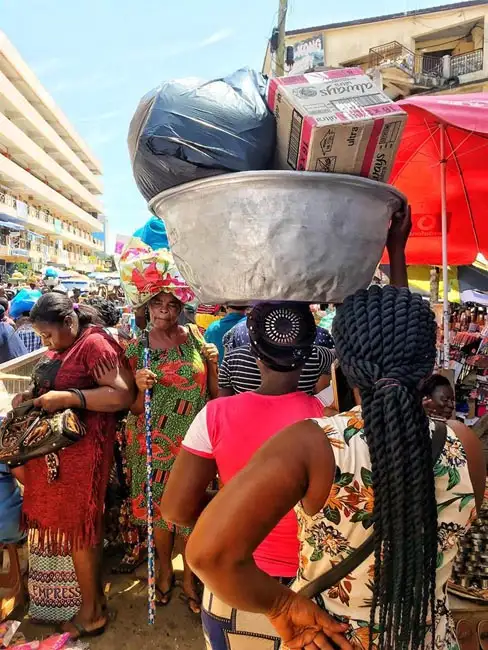
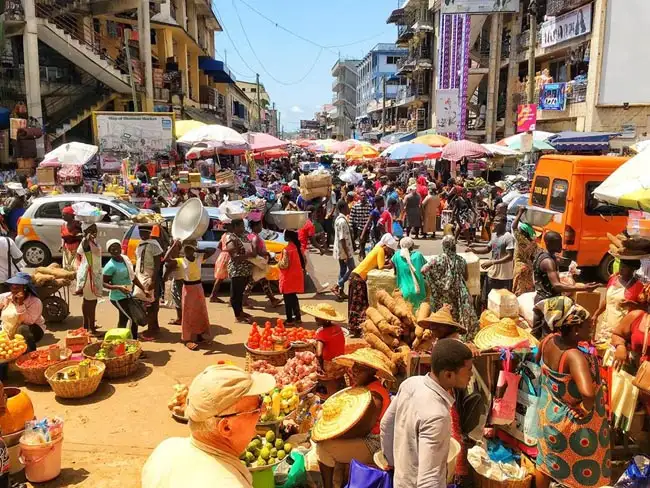
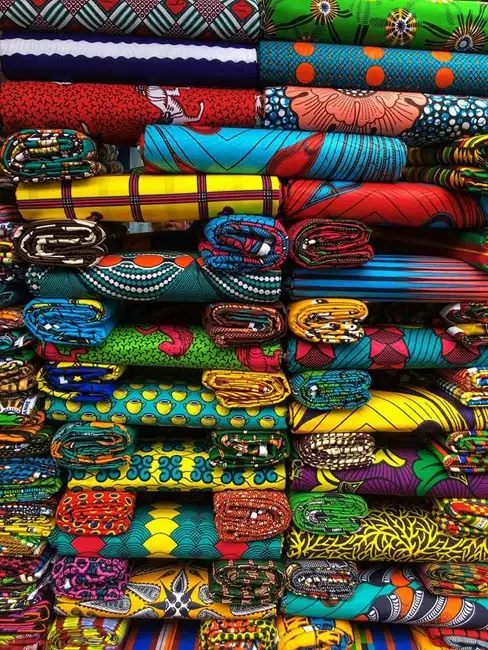
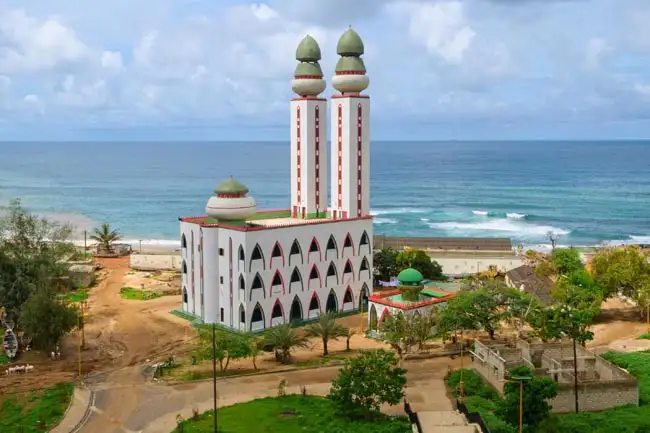
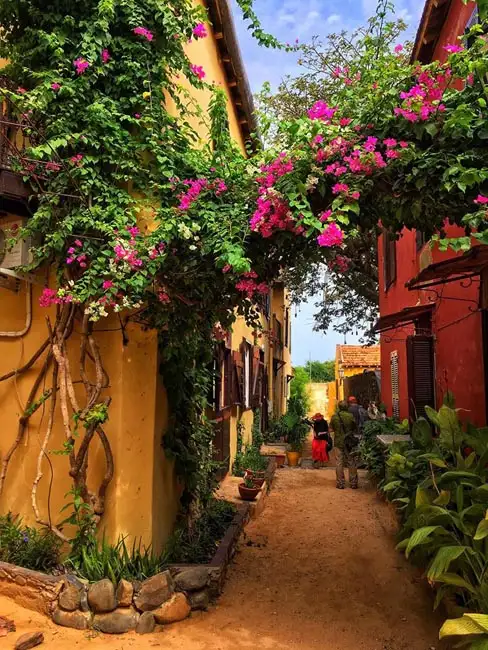
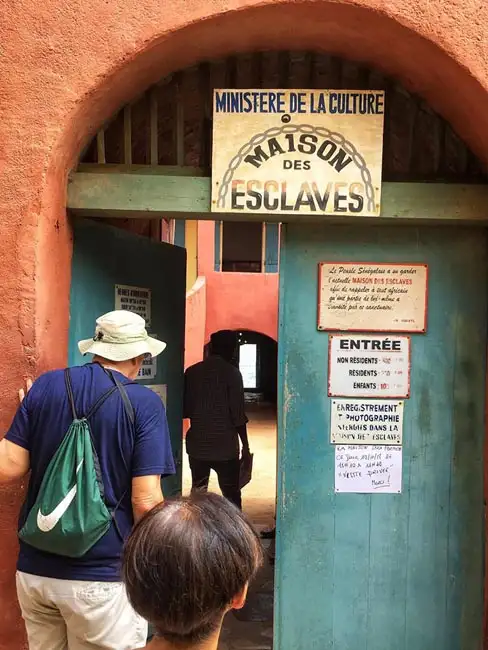
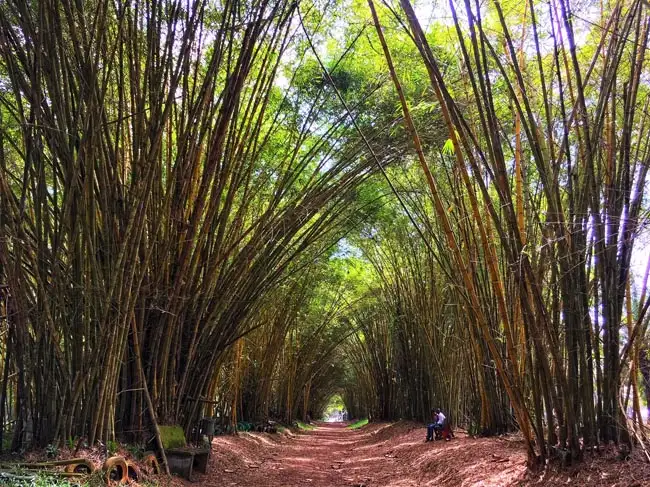
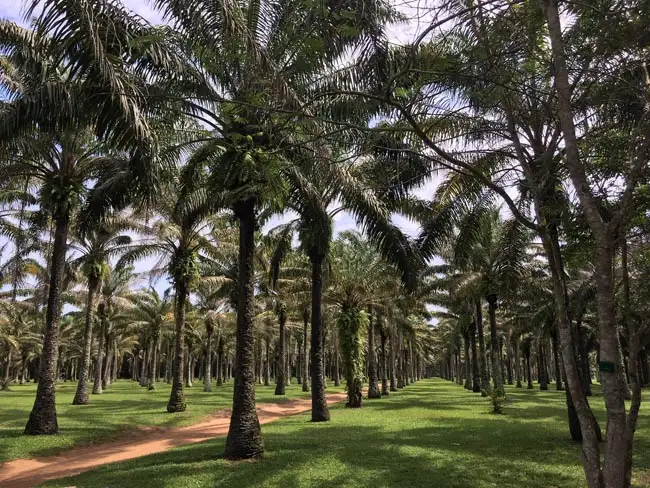
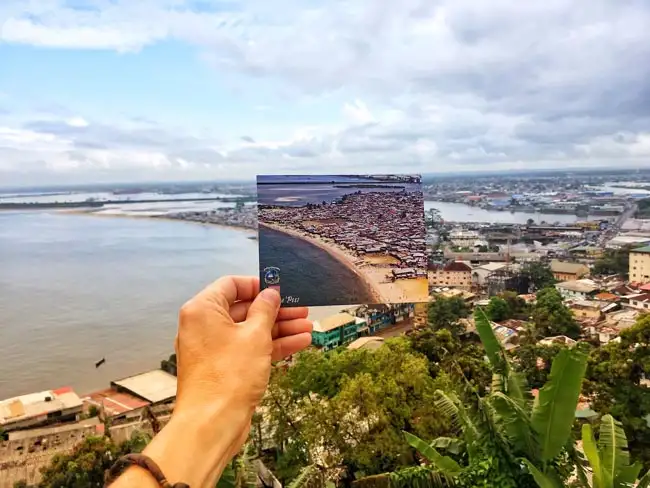
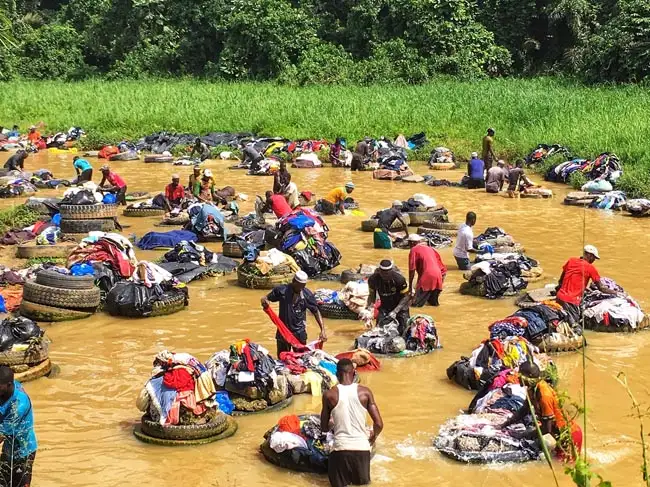
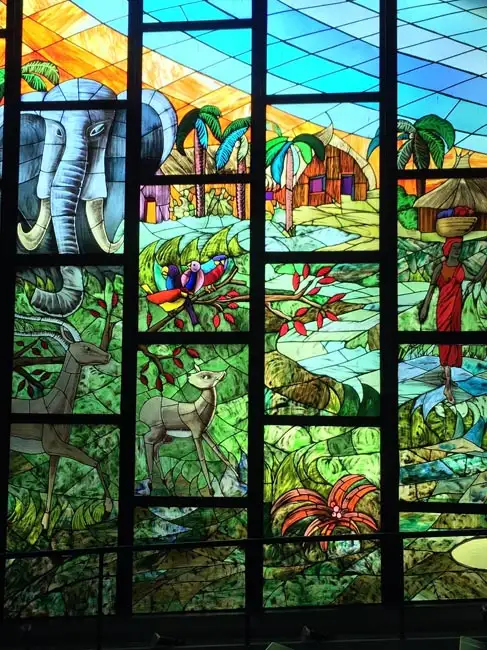
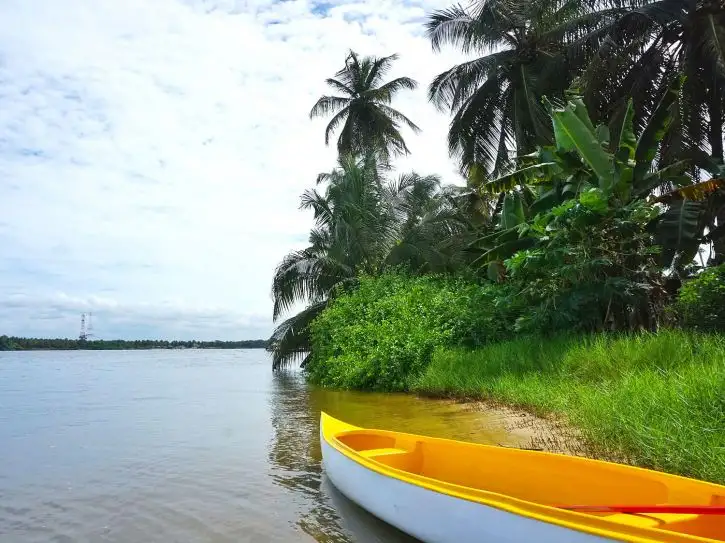
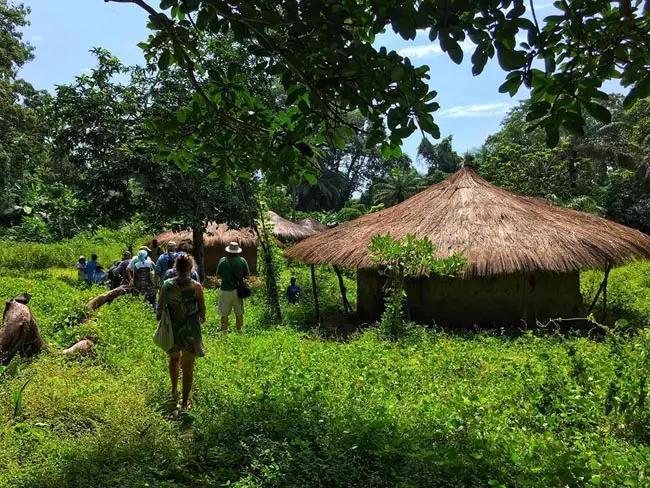
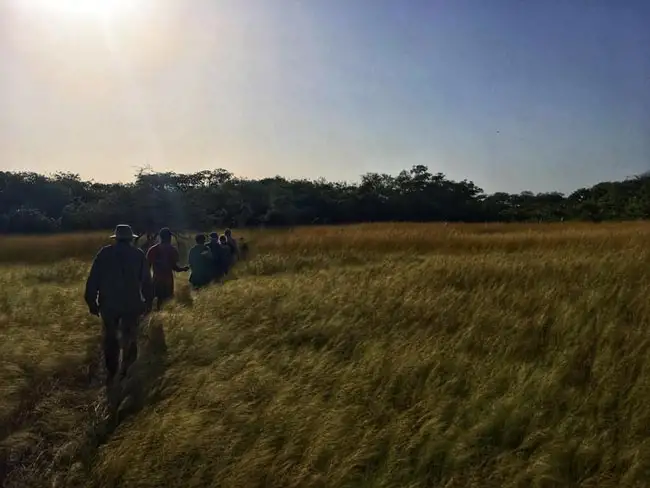
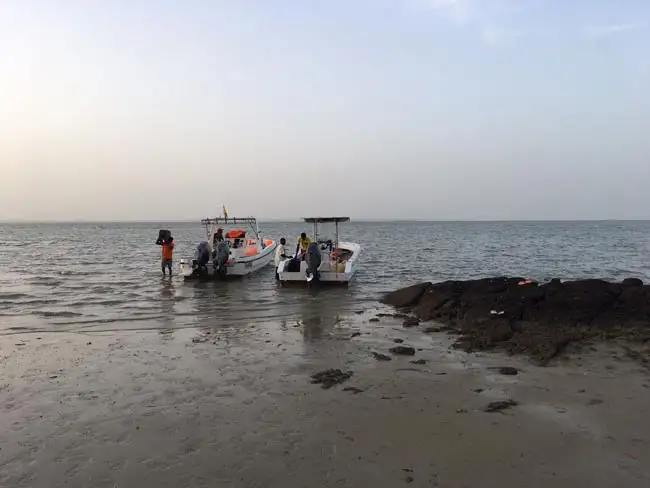
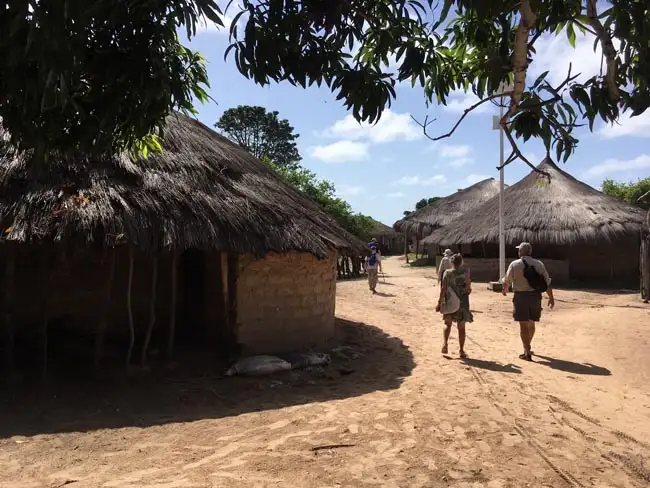
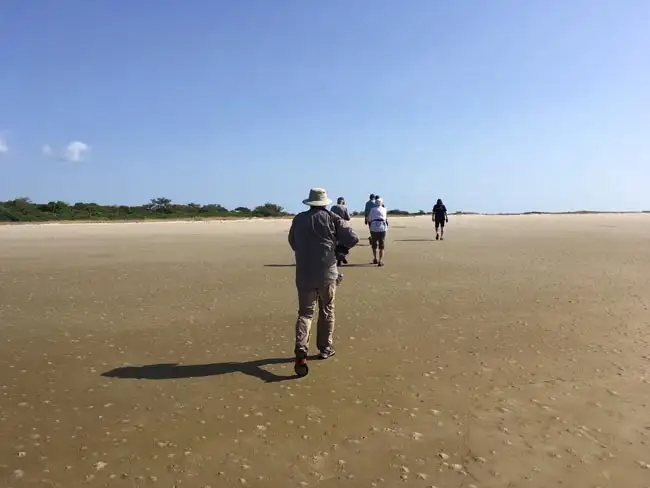
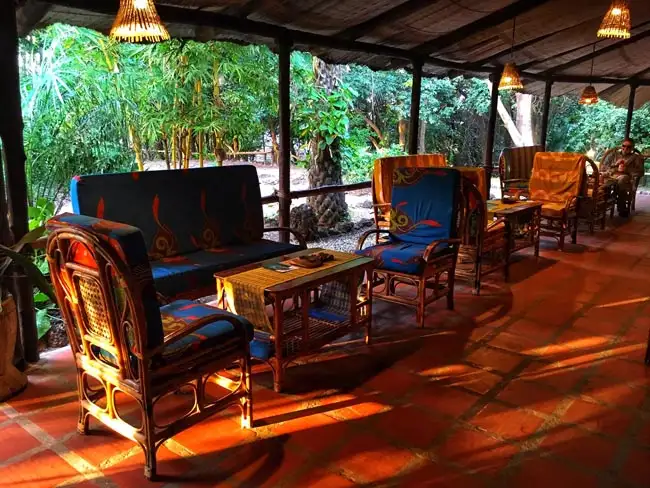
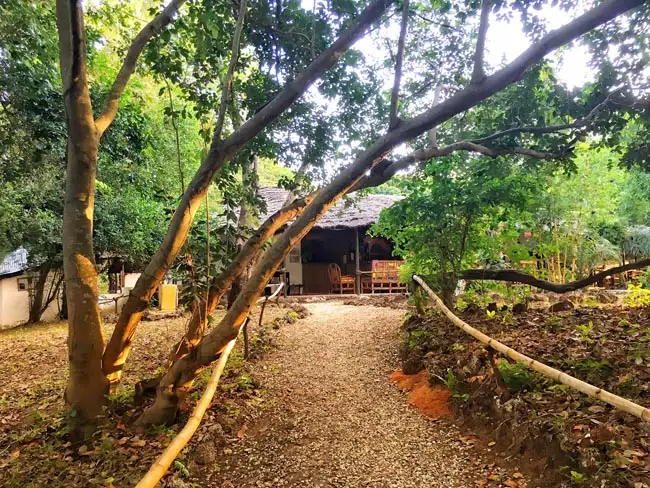
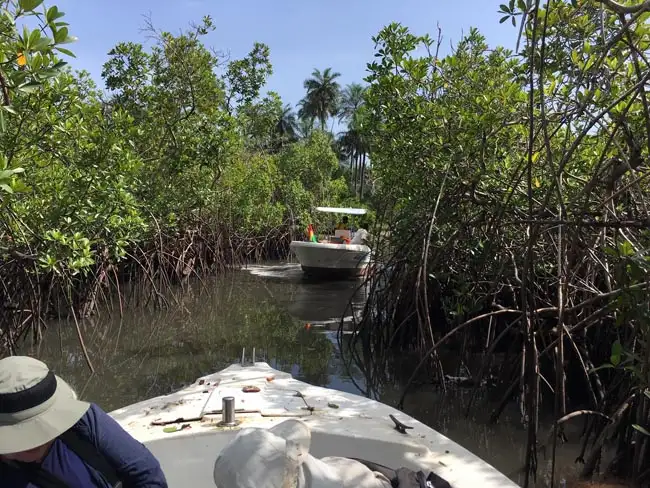
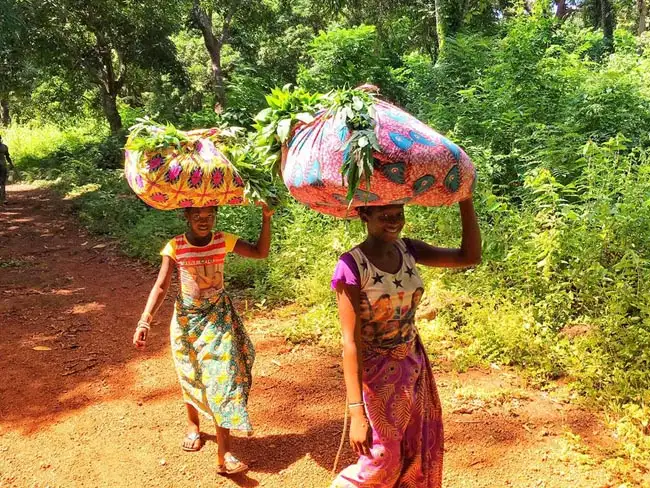
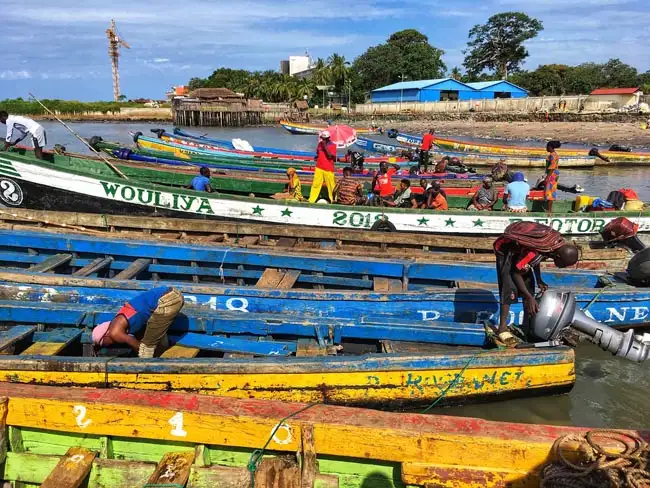
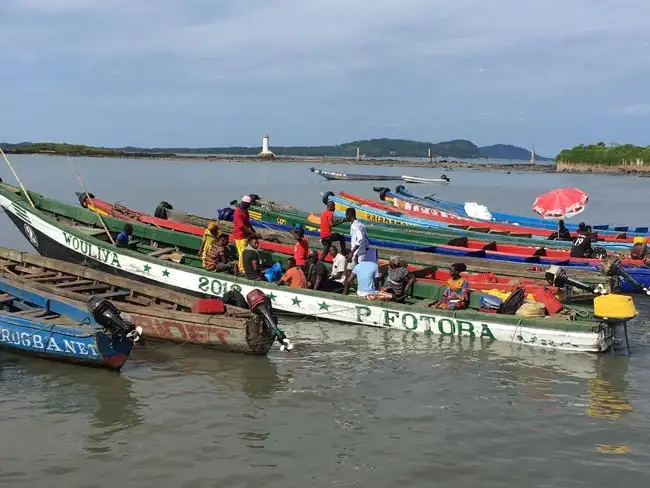
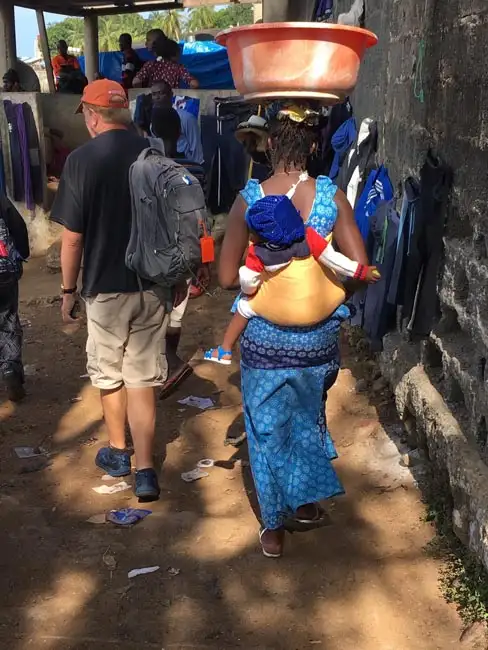
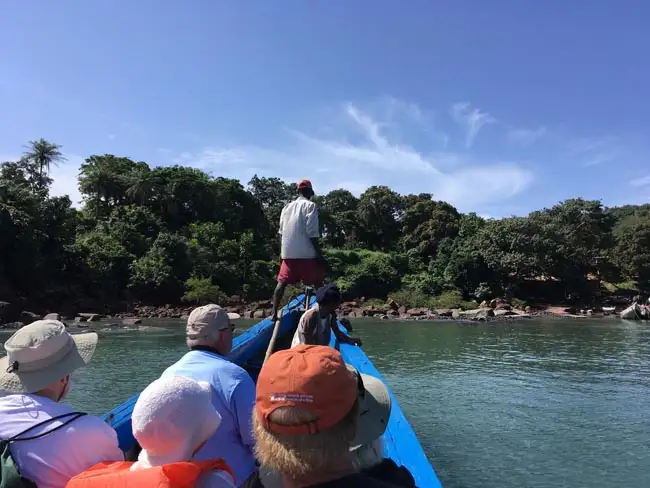
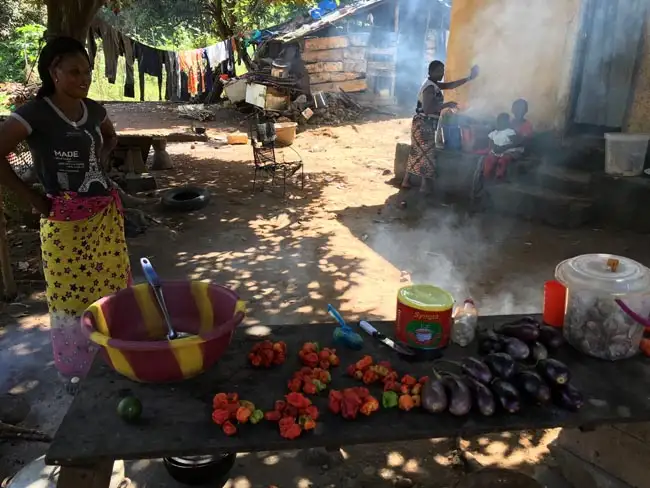
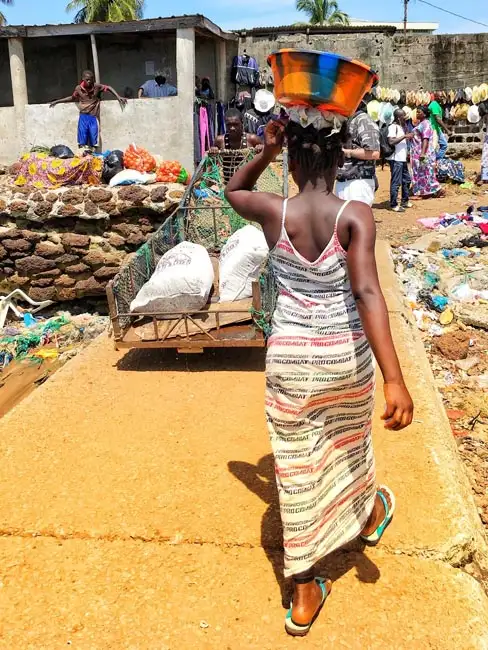
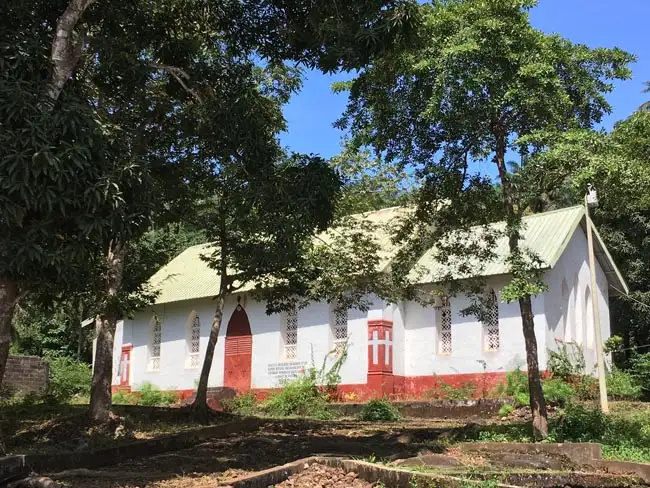
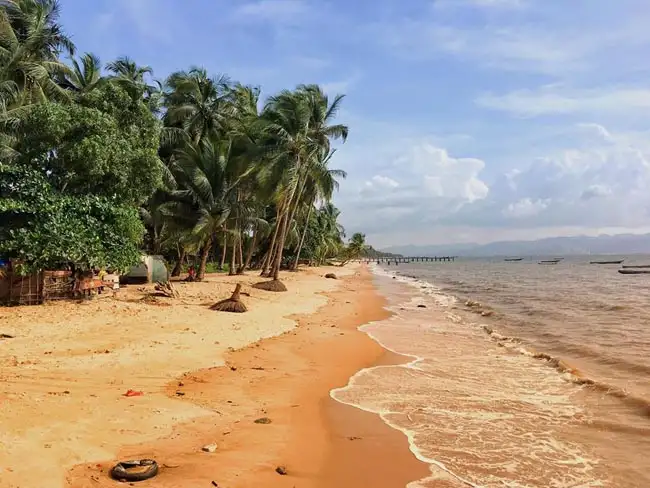
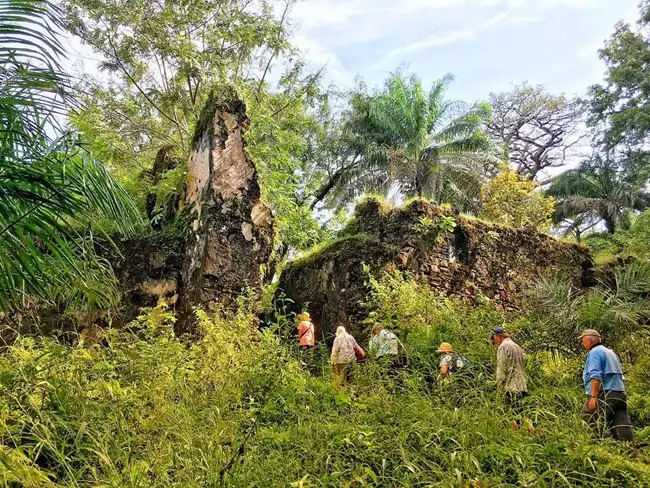
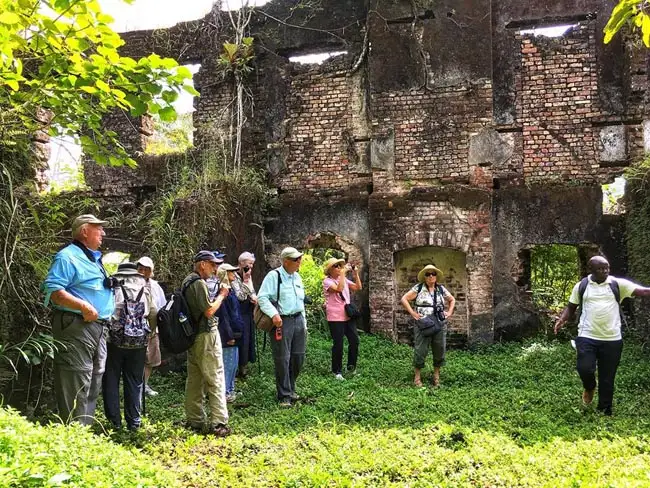
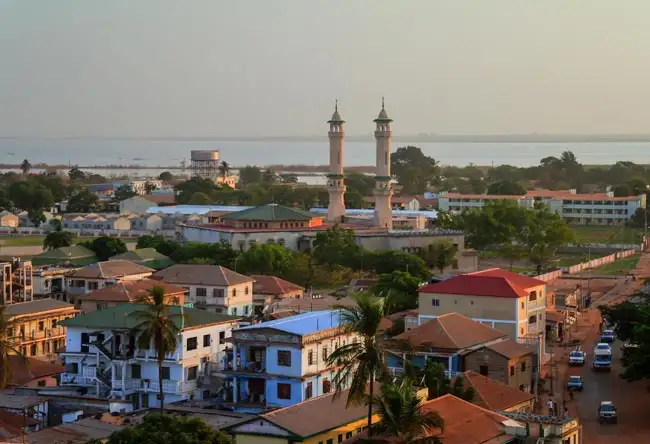
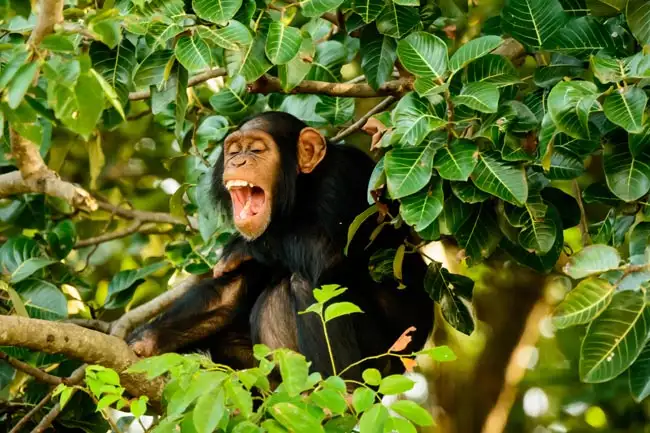
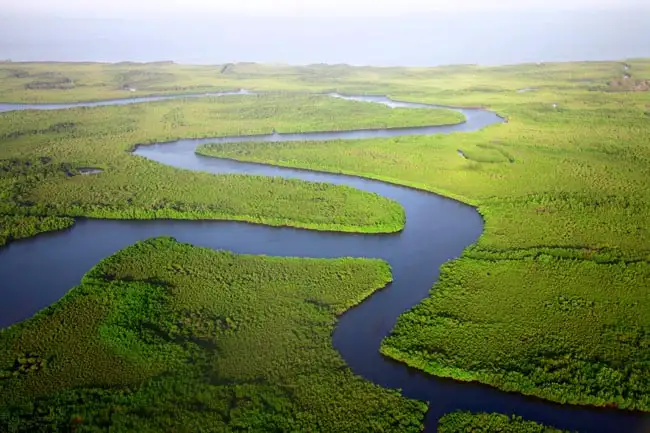
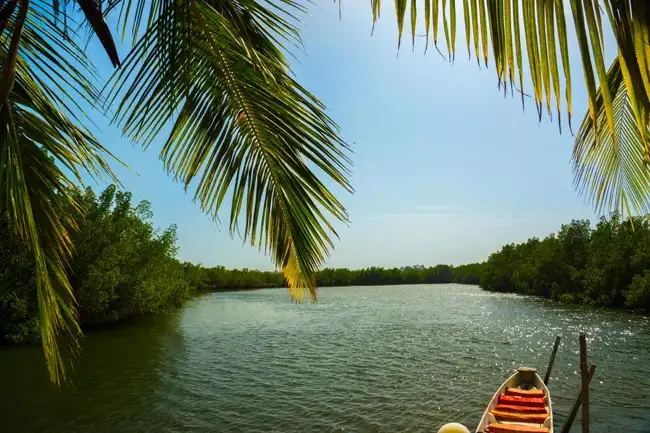
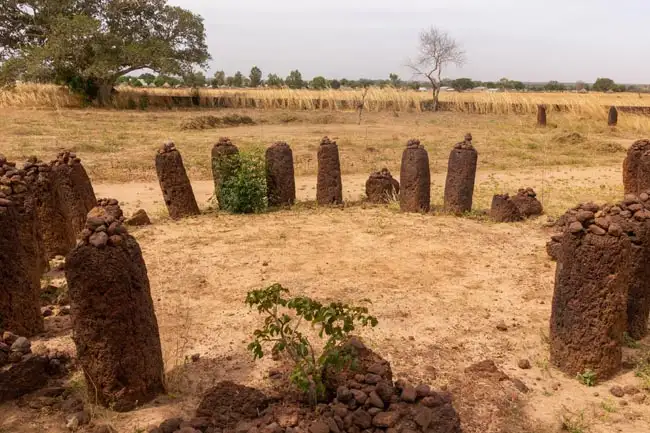
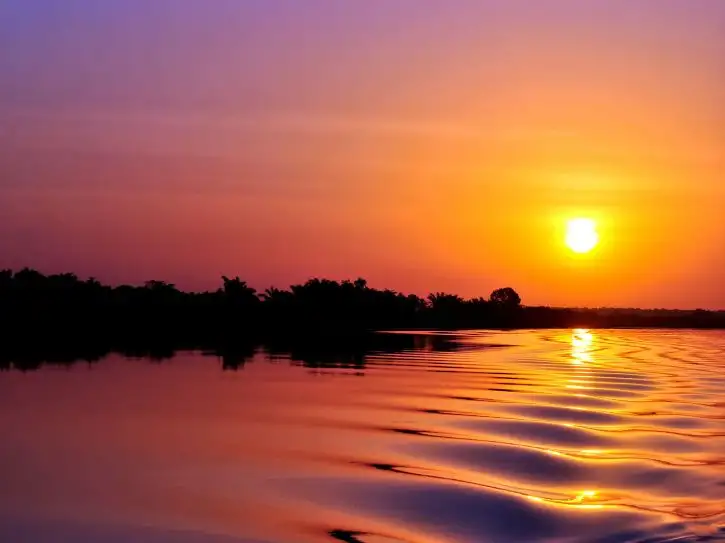
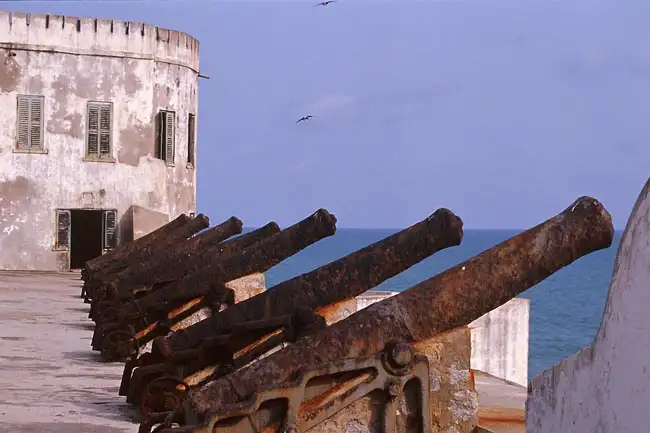
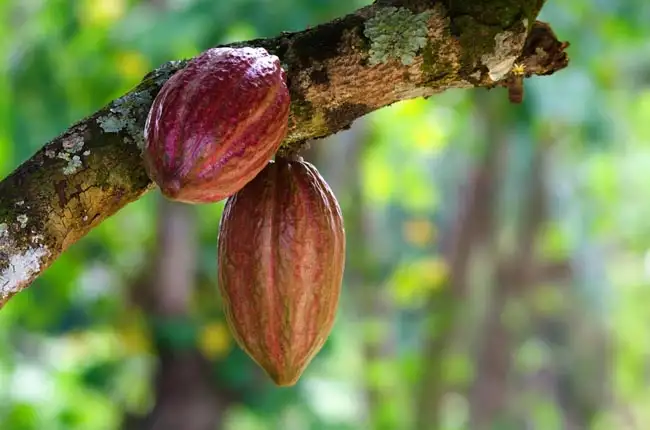
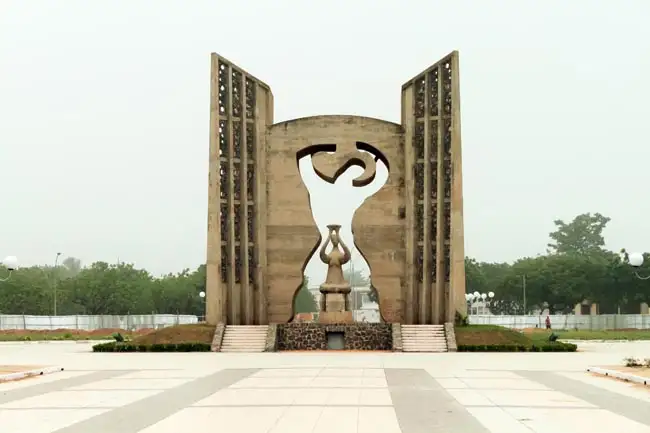
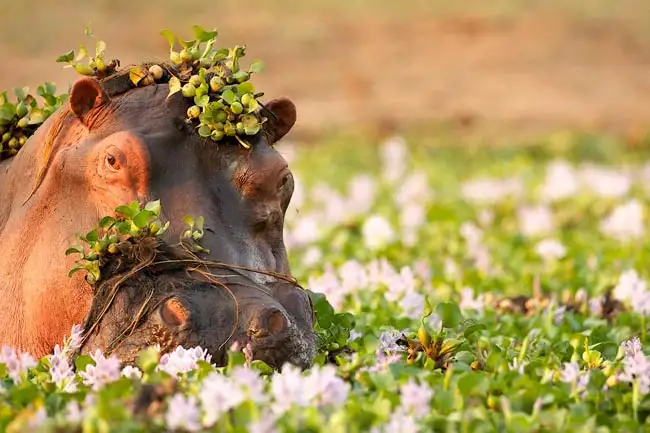
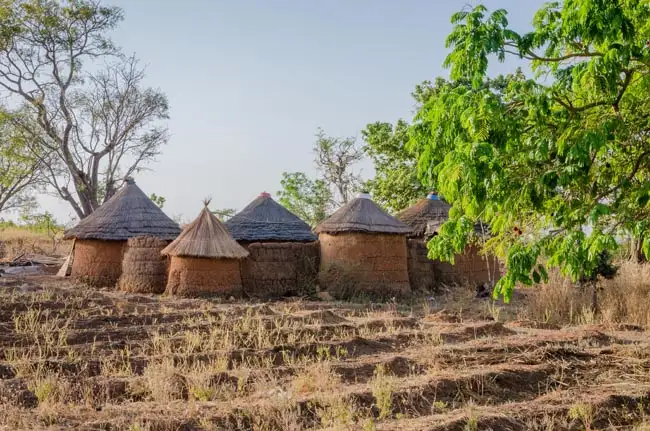
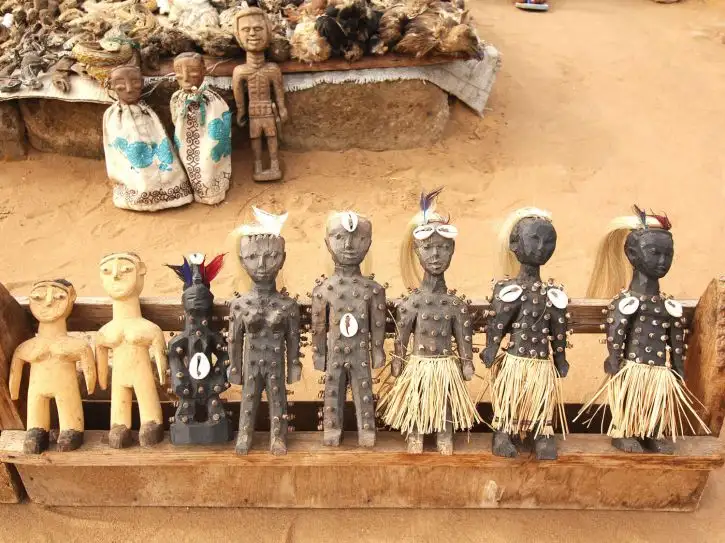
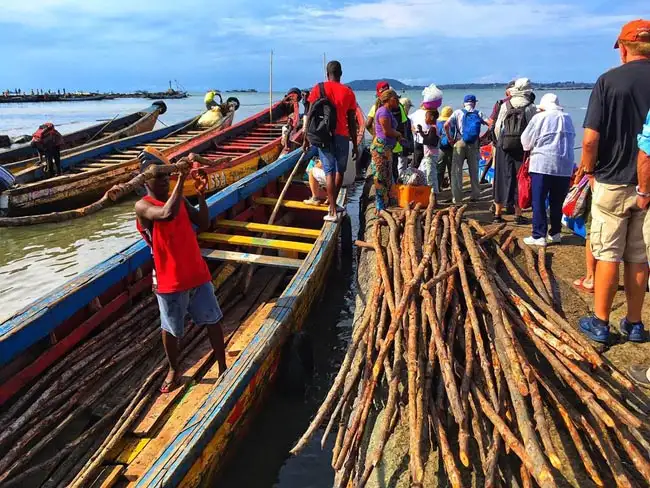



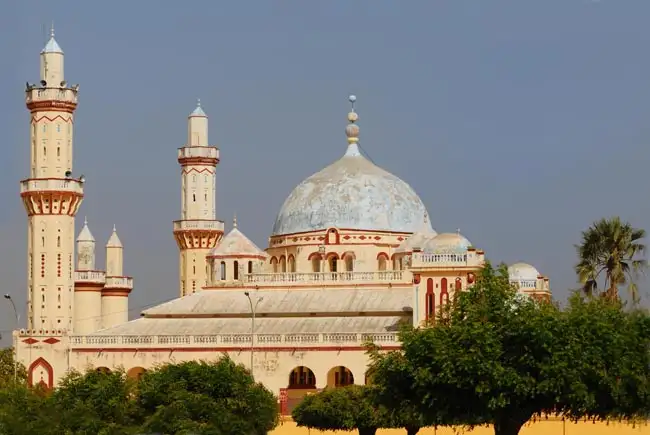
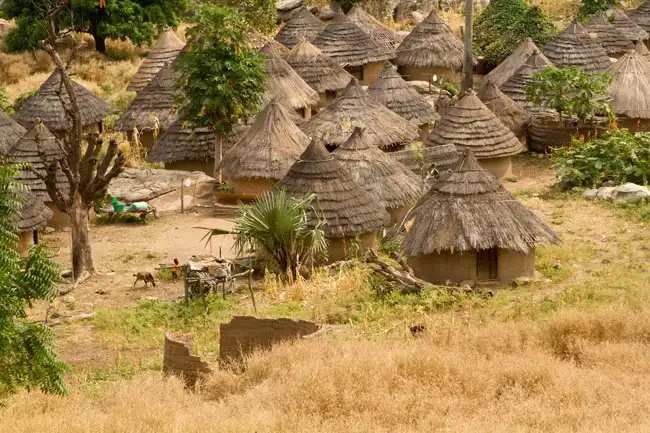
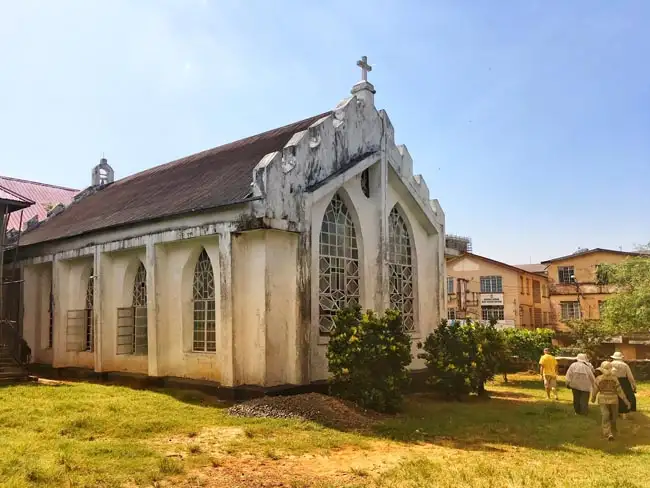
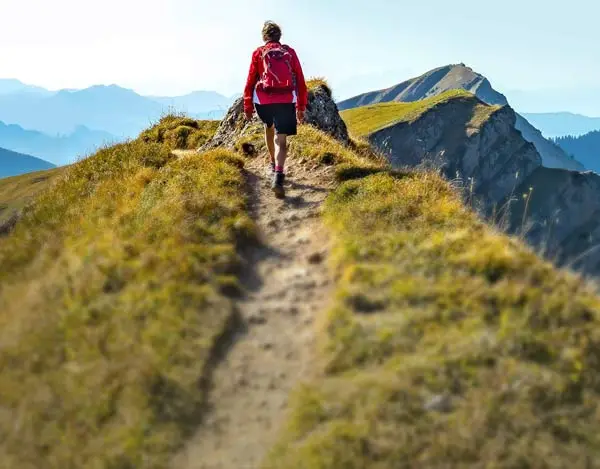
Book This Tour
- Final payment: Due 90 days prior to departure.
- Deposit: A non-refundable $1000 CAD Deposit is required at booking.
- Internal Flight Taxes: An extra $210 CAD applies for taxes and fees on tour flights. The internal airfares are included, but taxes are listed separately as they may change. Exceptions are noted in Red.
- Optional Single Supplement: $3910 CAD (number of singles limited).
(View options forsingle travellers) - Transfering Tour or Date: Transferring to another tour or tour date is only permissible outside of 120 days prior to departure and is subject to a $100 CAD change fee.
(Read our cancellation policy) - Internal flights are INCLUDED in tour price. Due to the nature of these flights and other arrangements, this tour requires a $1000 per person deposit and an additional pre-payment of $2000 at time of 'guarantee.' Contrary to our usual terms governing deposits, once paid these funds become 100% non-refundable/non-transferable. Dates a year away or more may be TENTATIVE due to multiple variables such as flights. Check also "Exclusions" section.
Prices below are per person, twin-sharing costs in Canadian Dollars (CAD). Pricing does not include airfare to/from the tour and any applicable taxes.
Frequently Asked Questions
- What is the maximum number of participants on a trip?Most of our tours carry a maximum of 18 participants; some tours (ie hiking tours) top out at 16. In the event that we do not achieve our minimum complement by our 90-day deadline, we may offer group members the option of paying a "small-group surcharge" as an alternative to cancellation. If all group members agree, we will confirm the trip at existing numbers; this surcharge is refundable in the event that we ultimately achieve our regular minimum. If the small group surcharge is not accepted, we will offer a refund of your deposit or a different trip of your choice.
- Can I extend my tour either at the beginning or end? What about stopovers?Yes, you can extend your tour either at the beginning or the end and we can book accommodation in our tour hotel. Stopovers are often permitted, depending on air routing. Stopovers usually carry a "stopover" fee levied by the airline.
- How do I make a reservation? How and when do I pay?The easiest way to make a reservation is via our website; during office hours, you are also more than welcome to contact us by telephone.
A non-refundable deposit is payable at the time of booking; if a reservation is made within 90 days, full payment is required. Some trips require a larger deposit. If international airline bookings require a non-refundable payment in order to secure space or the lowest available fare, we will require an increase in deposit equal to the cost of the ticket(s).
Early enrolment is always encouraged as group size is limited and some trips require greater preparation time.
Once we have received your deposit, we will confirm your space and send you a confirmation package containing your trip itinerary, any visa/travel permit related documents, invoice, clothing and equipment recommendations, general information on your destination(s), and forms for you to complete, sign and return to us. Your air e-tickets (if applicable), final hotel list, final trip itinerary, and instructions on how to join your tour, will be sent approximately 2-3 weeks prior to departure. - What about cancellations, refunds, and transfers?Please review our cancellation policy page for details.
- I am a single who prefers my own room. What is a single supplement?All of our tours have a single supplement for those who want to be guaranteed their own room at each location.
This supplement is a reflection of the fact that most hotels around the world do not discount the regular twin-share rate for a room by 50% for only one person occupying a room. Most hotels will give a break on the price, but usually in the range of 25-30% of the twin-share rate. This difference, multiplied by each night, amounts to the single supplement.
The conventional amount can also vary from country to country and some destinations are more expensive than others for single occupancy. In order to be "single friendly," the supplements we apply are not a profit centre for us and we do our best to keep them as reasonable as possible.
On most tours we limit the number of singles available, not to be punitive, but rather because many hotels allow for only a limited number of singles; some smaller hotels at remote locations also have a limited number of single rooms available.
Please note that most single rooms around the world are smaller than twin-share rooms and will likely have only one bed. - Do you have a shared accommodation program?Yes! If you are single traveller and are willing to share, we will do our best to pair you with a same-gender roommate. Please note that should we fail to pair you, we will absorb the single supplement fee and you will default to a single room at no extra charge.
